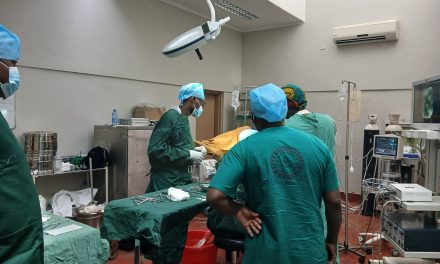
Corruption Creates A Room For Its Self In Malawi

Corruption is a major problem that plagues many governments and public officials around the world. It is a crime that has serious implications for a country’s economic and social development, leading to a breakdown of trust in government institutions, an increase in poverty, and the misappropriation of
public funds.
Unfortunately, looks like Malawi is too relaxed in the war of fighting against corruption. There some people that they do not want to be reminded on how bad their actions are if they indulge in corruption
act. And not beating about the bush the government officials are often complicit in the perpetuation of this crime. This has been proven with the past and present regimes in the country.
Regrettably, they use their positions of power to accept bribes, steer contracts to favoured companies, and gain access to public funds for their own personal gains. This type of abuse of power has serious consequences on the public and can result in a decrease in public services, an increase in government
debt, and a decrease in confidence in the government. This has led to a widespread sense of disillusionment in the country.
Looking at the case of Martha Chizuma surely shows that Ant-Corruption Bureau (ACB) is not independent as intended. Even a rare man would be able to understanding that government and the bureau are playing a hide and seek game. And with all that the question is why is it happening at the trust and in presence of Malawians? Should we say that Malawians are not capable or strong enough to
condemn the action?
It is very ill-fated that mostly Malawians are taken for granted in issues concerning country development and corruption, the substandard projects in the name of country’s development, taking corruption as a normal act. Once caught in action the people involved in corruption gets a mindset that it has happened and Malawians will eventually forget about it, this is increasing the cases of corruption
in a number of sectors.
It is highly questionable behaviour and should be condemned in the strongest terms. From the look of things the animal called corruption has grown wings and flies high like an eagle in Malawi.
Why should other people be exempted in issues concerning corruption? We are talking about an act that can easily drive away donors. The actions of politicians to go against anti-corruption measures have been increasingly concerning in recent times. In many cases, they have been seen to be using their positions of power to try and secure exemptions from the anti-corruption regulations that are in place.
In order to address the issue of corruption, there needs to be a greater focus on culture acceptance of it. This means that the government, civil society organizations, and Malawians must work together to create an environment in which corruption is not accepted as a way of life. This could include practising the already available stronger anti-corruption measures that are rigorously enforced, as well as providing better education and awareness-raising campaigns about the damaging effects of corruption.
It is therefore essential that government officials be held accountable for any involvement they have in corruption. This means that governments must have strong anti-corruption laws in place, with appropriate penalties for those caught engaging in corrupt practices. Additionally, it is necessary to make ACB fully an independent body to investigate any allegations of corruption and to ensure that those found guilty are held to account.
At the end of the day, governments must ensure that all public officials are aware of the importance of avoiding any involvement in corruption. This can be done through education and awareness campaigns that highlight the negative impacts of corruption and promote integrity within the government.
At the same time, it is also important for the citizens to take ownership of the issue and take a stand against corruption. This could include speaking out against it in public and private, organizing protests
against government officials accused of corruption, and creating an atmosphere of intolerance towards those involved in corruption.
On the other hand, it is essential that the public and private sector come together to ensure that any exemptions sought by politicians are closely monitored, to ensure that they are not used as a means to facilitate corruption.
Ultimately, it is the responsibility of all governments, citizens and businesses to work together in order to ensure that anticorruption measures are respected and implemented. This means ensuring that politicians are held accountable for any attempts to use their positions of power to avoid anti-corruption regulations.

































